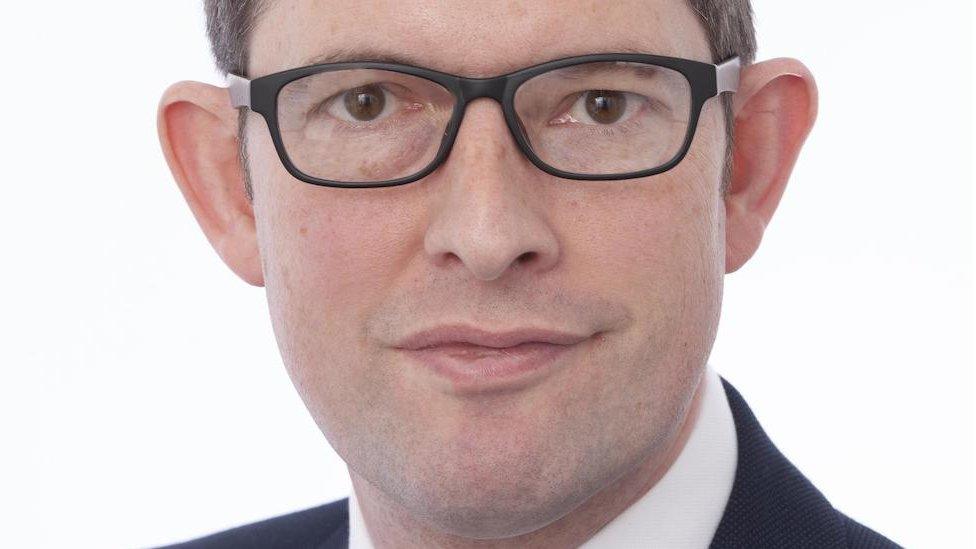MI5: Ken McCallum appointed new boss
- Published

Ken McCallum has been appointed the new director general of MI5, the security service has said.
Mr McCallum led counter terrorism investigations during the London 2012 Olympic Games and MI5's response to the attempted assassination of former Russian spy Sergei Skripal in 2018.
Currently deputy director general, he has worked there for nearly 25 years, a statement said., external
He succeeds Sir Andrew Parker, who retires in April after seven years.
Originally from Glasgow, Mr McCallum spent his first years at MI5 focusing on Northern Ireland-related terrorism, and later specialised in countering Islamist extremist terrorism.
He led its strategic response to the series of terror attacks that took place in 2017 and has also worked on cyber-security.
Mr McCallum said: "MI5's purpose is hugely motivating. Our people - with our partners - strive to keep the country safe, and they always want to go the extra mile."
Sir Andrew Parker said he is "the right person to take MI5 forward" as the country "deals with the impacts of the coronavirus pandemic".


Like most people who ascend to the job of running one of the UK's intelligence agencies, the public will have heard little about Ken McCallum.
But inside national security circles he is a well-known and well-regarded figure whose appointment is likely to be popular.
Running MI5 is a challenging job at any time - with the responsibility of working out which threats to prioritise and how to avoid being outpaced by technology. But McCallum will also have to wrestle with new issues.
For nearly two decades since the 9/11 attacks, the challenge of terrorism has dominated the security service's work.
But that threat is now diversifying - with more far-right activity, which MI5 has now begun to monitor.
And there is concern that threats from hostile states - notably Russia - require more attention, with not just old-fashioned espionage but also disinformation and cyber-attacks.
All of this will now have to be done in an environment where coronavirus is asking new questions about priorities and about where the biggest risks to our security and way of life really come from.